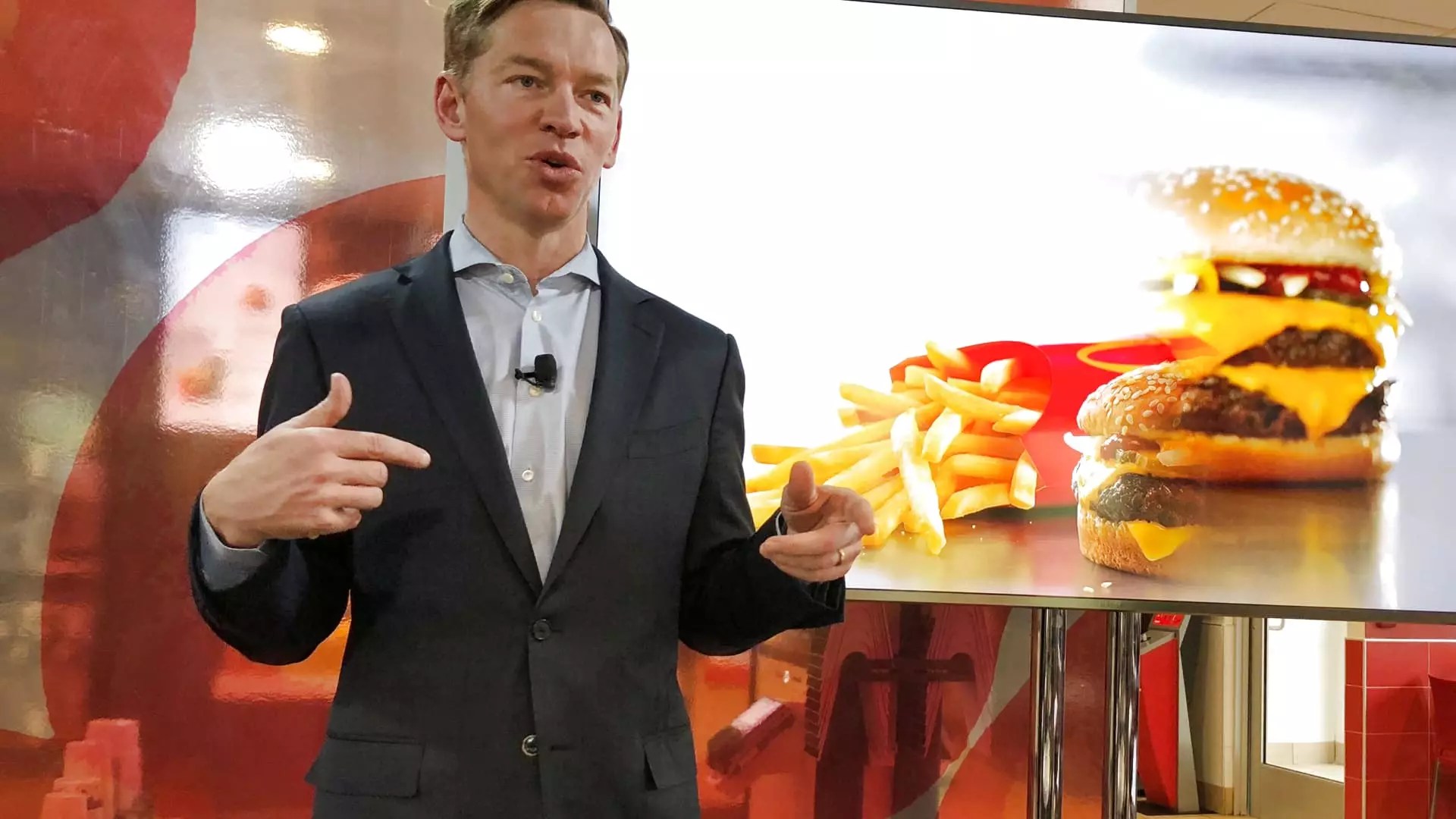The recent E. coli outbreak linked to McDonald’s Quarter Pounder burgers has raised significant concerns regarding food safety and corporate accountability. As the fast-food giant grapples with the aftermath of this public health scare, how it navigates this situation may serve as an important case study in crisis management, brand resilience, and consumer trust restoration.
In the wake of the E. coli outbreak’s announcement, McDonald’s experienced a notable shift in consumer sentiment. Reports indicated that daily sales and foot traffic plummeted as fear spread among patrons regarding the safety of its food offerings. The company’s Chief Financial Officer, Ian Borden, noted a negative impact on sales shortly after the outbreak was made public. This reaction underscores the fragile nature of consumer trust in the fast-food sector, where a single health incident can have immediate and severe repercussions on a company’s bottom line.
Despite this challenging environment, Borden expressed confidence that McDonald’s would not experience a material impact on its business in the long run. This statement reflects both an optimistic view and a strategic focus on reassessing and reinforcing consumer confidence — a crucial element for recovery in the food industry.
Responding swiftly to the health scare, McDonald’s took several measures to mitigate the situation. The chain halted sourcing onions from a particular supplier while the Food and Drug Administration continued its investigation into the source of the outbreak. Not only did McDonald’s pull the Quarter Pounder from its menu at several locations, but it also adapted its offerings in approximately 900 restaurants by continuing to serve the burger without slivered onions.
CEO Chris Kempczinski publicly acknowledged the gravity of the situation, expressing deep concern over the reported health cases and offering apologies to affected customers. His sentiments were underscored by a commitment to rectify the situation and regain public trust. Such transparent communication is essential during times of crisis, as it helps to reinforce the company’s dedication to consumer safety and accountability.
Interestingly, while the E. coli outbreak initially induced a decline in sales, McDonald’s third-quarter report revealed a slight increase in same-store sales in the U.S. — a modest 0.3% growth compared to the previous year. This result highlights McDonald’s resilience in navigating consumer sentiment and market challenges. However, it is important to note that this growth fell short of analysts’ expectations, indicating that despite improvements, the company remains under pressure to reestablish its prior sales momentum.
Additionally, the overall same-store sales figure dipped 1.5%, adversely affected by declining demand in major international markets. This inconsistency suggests that while local performance may recover, broader challenges persist and necessitate strategic attention from McDonald’s leadership.
As the E. coli outbreak continues to unfold, legal consequences loom over McDonald’s. Reports indicate that at least three lawsuits have already been filed by victims impacted by the outbreak. This legal scrutiny adds a layer of complexity to the company’s recovery efforts, as it must balance addressing health concerns with navigating potential liabilities.
In the long term, McDonald’s ability to recover from this incident will largely depend on its effectiveness at fostering consumer confidence and ensuring the highest standards of food safety. The company’s commitment to transparently addressing concerns, coupled with dedicated efforts to improve food safety protocols, will be pivotal as it seeks to emerge from this crisis stronger than before.
Moving forward, McDonald’s faces the challenge of restoring trust among consumers who may remain wary after the E. coli scare. The company must not only reassure its customers through effective communication but also demonstrate concrete actions that prioritize food safety. This commitment signals to diners that their health is paramount, which could help to rekindle the brand’s reputation and strengthen its market position.
As McDonald’s navigates this crisis, it serves as a reminder of the importance of proactive risk management, transparency, and customer engagement in the food industry. The ability to learn from this incident and implement lasting changes will be crucial for the fast-food titan as it aims to maintain its status as a frontrunner in a competitive market.


Leave a Reply